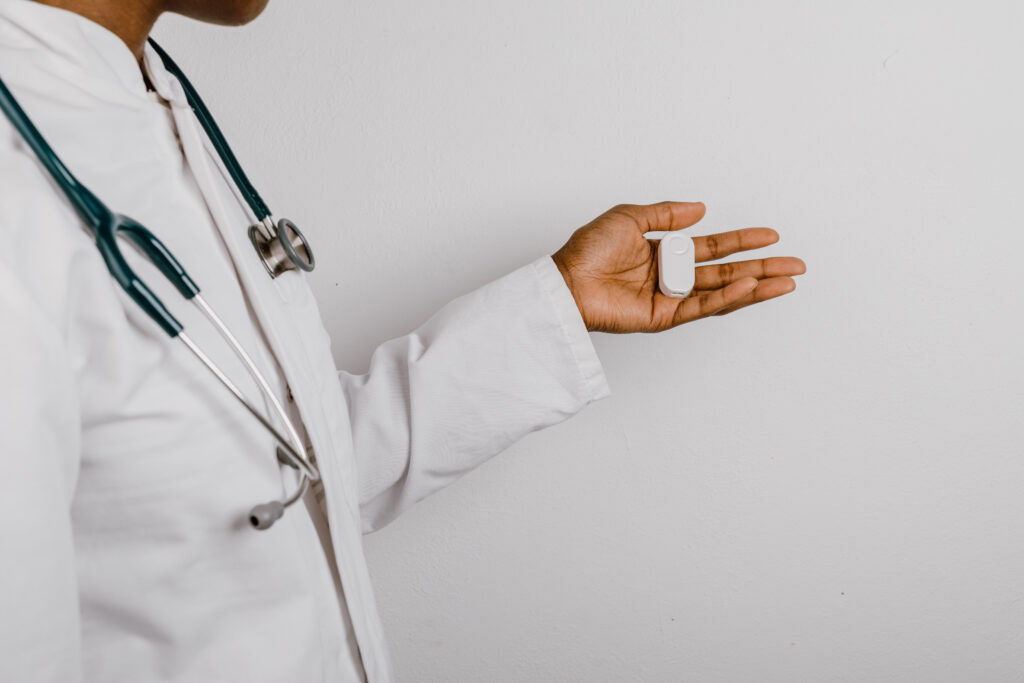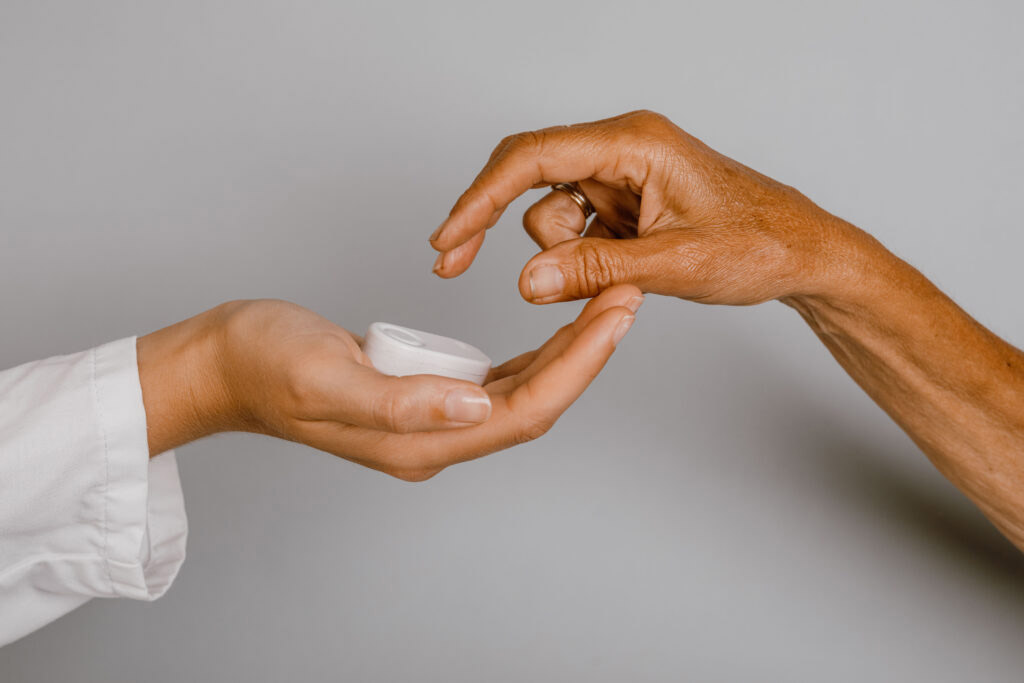Leonard Moonen and Liselotte Stolk founded Praxa Sense to develop such a tool. Yet, while perfecting their device, they discovered a surprising alternative market fit for their device: that of post-operative monitoring of patients at home.
From heart monitoring to post-operative monitoring
In 2017, co-founder Leonard Moonen graduated with a small remote health monitoring device for his graduation project, built for the Dutch heart foundation (Hartstichting) and Philips. The device is called Afi and can detect cardiac arrhythmias in the early stages: an appliance with four sensors to monitor patients’ health. Afi can monitor a person’s heart rhythm for up to 30 days. Current monitoring equipment are usually utilized for 24 to 48 hours, because of their low comfort.
Afi uses four sensors to measure the patient’s ECG, heart rate, oxygen saturation, respiratory rate, movement, and temperature. Machine learning algorithms process the data to check for signs of infection or heart disorders. Then, the cardiologist can read an automatically generated report to review and discuss with the patient.

Praxa Sense discovered by talking to doctors and hospitals that Afi is also interesting for post-operative monitoring. Usually, patients stay in hospitals for observation to ensure they heal well. Otherwise, infections may complicate recovery. Letting patients stay overnight costs a lot and poses a high staff workload. But, sending patients home too soon may result in an untreated infection found too late. Therefore, it is imperative to find such symptoms early so people heal as fast as possible. Using Afi, patients can be reliably monitored at home.
Liselotte Stolk: “We want to make a difference in healthcare for people with chronic diseases and present a solution for the staff shortages. The healthcare sector has many rules and regulations, which is a big challenge. Much innovation is still possible, and it’s a nice challenge to try and make an impact there.”
The healthcare sector has many rules and regulations, yet much innovation is still possible. It’s a nice challenge to try and make an impact there.
Working on the business and in the business
Praxa Sense joined the Accelerator program of YES!Delft, after completing the EIT health validation program in Dublin. The YES!Delft program helped them to get their foundations right: they learned how to build a good business case and create a profitable company. To accelerate even more, they have joined Techleap’s Pole Position program.

Praxa Sense also believes it is essential to work on soft skills. It is taking care to keep developing themselves as leaders and great team members. For example, by participating actively in workshops of YES!Delft around leadership. They also have an office in the YES!Delft building which enables them to stay close to fellow startups and exchange ideas at the coffee machine.
Liselotte Stolk: “I’m following workshops of YES!Delft around leadership and soft skills: we now have a team, which comes with great responsibility. We want to be a good employer.”
I’m following workshops of YES!Delft around leadership and soft skills. We now have a team, which comes with great responsibility. We want to be a good employer.
Next steps for the upcoming 12 months
Praxa Sense is almost ready to release its product to the market. Currently, they are running the first clinical trial with the Reinier de Graaf hospital in the cardiac emergency department, where they monitor hospital patients to check their algorithms’ accuracy. The next step is to get certified for heart rhythm monitoring, after which the certification will be expanded to post-operative monitoring at home.
Up to now, Praxa Sense has secured over 2 million euros in funding. They got early-stage financing and subsidies from the NWO. In addition, they’ve had angel investors and convertible loans. Furthermore, they recently got the Eurostars subsidy to develop another revolutionary sensor to tackle any inaccuracy due to motion sensitivity: a big innovative project. Now they are busy with a new funding round: Praxa Sense aims to raise 2,5 million euros. They are looking into large-scale manufacturing to prepare their product for the market, expand the team, set up multiple clinical trials, and expand CE certification. Their path is mapped out for the coming year to make Afi a success.
Your dream can become a reality too!
As long as you want to make a change, don’t miss the opportunity to boost your startup by joining the YES!Delft Validation Lab or Accelerator Program. However, if working for a startup resonates more with your ambition, we got you! Check out vacancies placed by our startups.
Be the change, as change starts with you.




